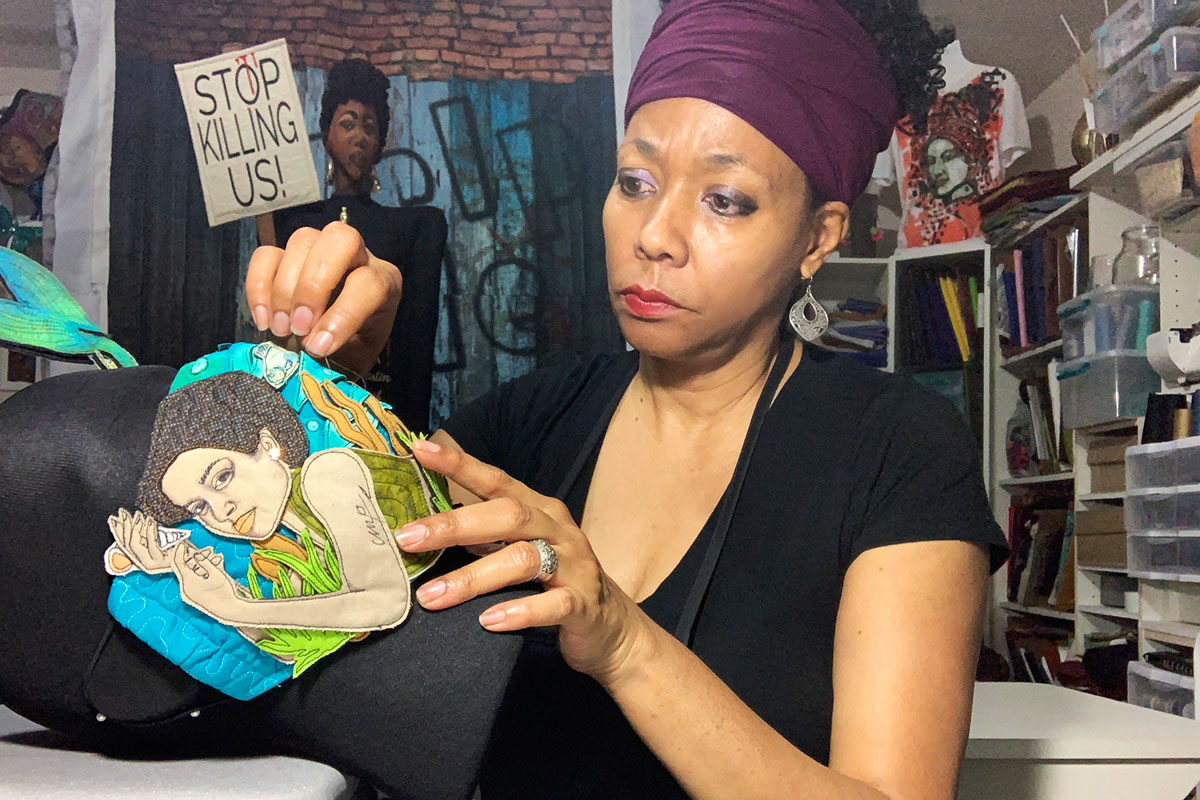The Smithsonian Center for Folklife and Cultural Heritage’s African American Craft Initiative (AACI) will host the first African American Craft Organization Think Tank, May 25 through 27. These meetings will center the voices of key stakeholder African American craft organizations, and will inform the greater objectives of AACI: how African American craft organizations can help to build networks among makers, increase recognition and visibility of African American craft, and provide organizational and institutional support.
The think tank will follow a similar structure to the October 2020 Makers Summit: three meetings of ten to fifteen people, representing a variety of stakeholder organizations. As part of the Smithsonian Artisan Initiative and the Center’s Cultural Sustainability program, the think tank will highlight the voices of African American craft organizations, museums, craft schools, HBCUs, and arts organizations.
“I think there are ample opportunities to use my platform and visibility within the craftivism community to continue to provide opportunities to showcase and uplift the work that African American craft professionals have been and are doing,” said Shannon Downey, a think tank participant and Massachusetts-based founder of Badass Cross Stitch.
Kelly Taylor Mitchell, professor of art and visual culture at Spelman College, also shared her enthusiasm toward collaborating with AACI. “I am very excited by this initiative, especially as an artist who relies on craft-based processes in my practice and as an educator striving to ensure craft-based processes maintain a central role in art education. As a representative of Spelman College, my priority is to identify how this collaboration can serve Spelman/Atlanta University Center Consortium/HBCU students.”
Following the think tank, AACI will host the next set of stakeholder organization meetings, the Craft Institution Consortium, in July 2021. The consortium will gather national craft organizations, museums and galleries, and funding foundations to address how they can better include African American makers and craft artists in their diversity, equity, accessibility, and inclusion efforts, and will continue the initiative’s mission to increase public awareness, networks, and institutional support for African American makers on a national and international scale.
For inquiries, please contact AACI at AfricanAmericanCraftInitiative@si.edu.
About the Smithsonian Artisan Initiative
The Smithsonian Artisan Initiative aims to reposition artisans as leaders of the creative economy by providing the knowledge, skills, and support necessary to revive and sustain their communities’ craft traditions. Dedicated to building the sustainability of traditional knowledge and cultural expression, the program brings together community-driven research and documentation, product design and development, enterprise training, and a suite of tools artisans can use to unlock access to markets.
About the Cultural Sustainability Program
At the Center for Folklife and Cultural Heritage, we acknowledge a significant and accelerating decline in cultural vitality. While globalization connects us in new ways, it also threatens the world’s cultural diversity. Social, economic, and political forces—like urbanization, oppression, war, genocide, climate change, and mass production of culture—pressure traditional cultures to assimilate. In the face of these challenges, communities persist in preserving and practicing their living cultural heritage. Our Cultural Sustainability program works with communities to bolster these efforts.


